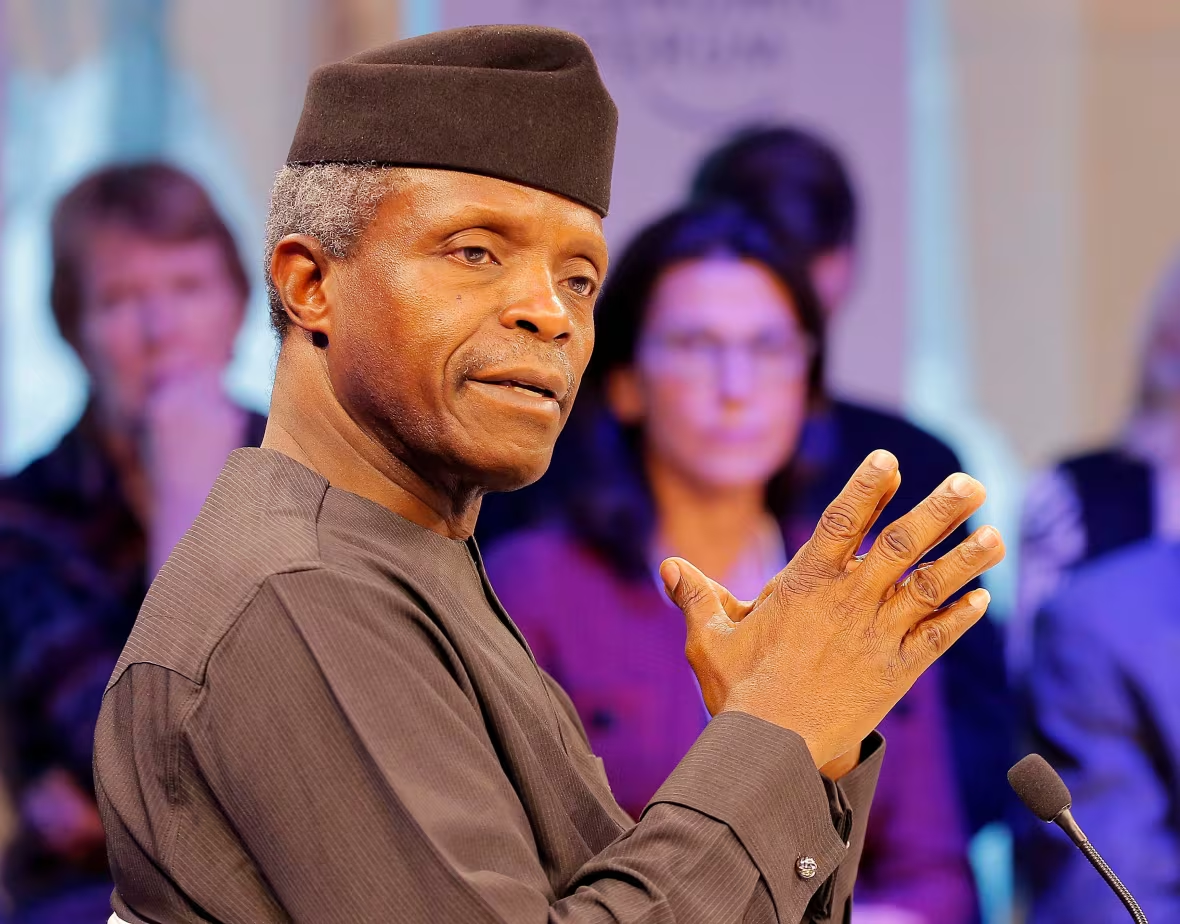POLITICS

GODLY LEADERSHIP NEEDED NOW MORE THAN EVER — OSINBAJO CALLS NIGERIANS TO POLITICAL RESPONSIBILITY
Former Vice President of Nigeria, Prof. Yemi Osinbajo, has urged Nigerians—especially Christians and the youth—to engage actively in politics as a vital means of shaping leadership and driving meaningful change in the country.
He made the call on Saturday while delivering the keynote address at the 2nd Annual Daniel Taiwo Odukoya Memorial Lecture, held at The Fountain of Life Church in Lagos. Themed “The Evolving Relationship Between the Church and the Government in Nigeria,” the event brought together religious leaders, policymakers, intellectuals, and youth to explore the link between faith and governance.
Addressing widespread skepticism about politics, Osinbajo acknowledged its poor reputation globally but emphasized that it remains the only legitimate path to leadership and societal influence.
“Politics has gained a negative image, not only in Nigeria but worldwide,” he said. “However, it’s the only avenue through which we can influence a nation’s future. If we fail to participate—by selecting leaders, shaping policies, or joining political parties—we lose the right to complain when decisions don’t reflect our values.”
He stressed that political engagement should be guided by knowledge, preparation, and moral clarity. Urging young Nigerians to pursue public office with diligence, Osinbajo highlighted the importance of intellectual capacity and a strong understanding of governance.
“You need to study and understand how systems function—whether healthcare, education, or the economy—especially within the African context,” he advised. “Passion alone is not enough. Without preparation, there will be no lasting impact. Many enter politics without plans or knowledge and leave without making a difference. Leadership requires more.”
To Christian believers, Osinbajo emphasized that political service must be an extension of spiritual values. “A true Christian serves not man but God. Your role in politics or governance should reflect humility, hard work, and a heart for service,” he said.
He shared his personal story to illustrate a life of integrity, revealing that he owned no home until the age of 51 and only began driving a brand-new car in 1998—years after completing his education.
He called on the Church to restore its role as society’s moral guide, insisting that its strength lies not in material prosperity but in moral authority.
“The gospel should not be reduced to motivational speaking or prosperity doctrine,” Osinbajo cautioned. “The focus must remain on helping the poor, living with integrity, and seeking justice. If the Church demands accountability from the government, it too must lead by example.”
He cited how biblical values played a critical role in the development of Western and Eastern civilizations. “Jesus Christ’s teachings helped shape Europe and America, and even nations like Japan and China studied those principles,” he noted. “For Nigeria to be transformed, we need informed, principled, and active political participation.”
He concluded on a hopeful note: “Nigeria is not beyond redemption. But true change requires morally grounded individuals with vision to step up and lead.”
Earlier in the event, Dr. Tobi Enuwa, daughter of the late Pastor Taiwo Odukoya, in her welcome speech, reflected on her father’s belief in the dual roles of spiritual and civic leadership.
“He believed that true leadership must integrate both faith and civic duty,” she said. “He consistently encouraged Christians to take part in nation-building.”
"This represents a significant development in our ongoing coverage of current events."— Editorial Board









